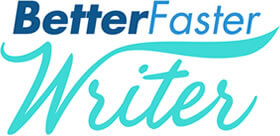Email subject lines are often overlooked but have the potential to make or break your workplace communication and productivity…
What’s the first thing people look at when deciding whether or not to open an email? The From name. And the second? The email subject line—and that makes the subject line key.
This is something I emphasize when teaching email copywriting, but it is every bit as relevant to writing at work. While the email marketer needs compelling email subject lines to get a prospect to open an email so they’ll see the sales pitch, you need specific email subject lines.
Why? Because:
- You’ll spend less time on email because your email subject lines will help recipients to reply in a timely manner with the information you need.
- How you do email reflects on your personal and professional brand at work. And specific subject lines = better emails.
- Your older emails will be easier to find because specific subject lines make emails more searchable…another time saver.
- You’ll set an example for your coworkers, management, employees and clients and then you’ll spend even less time on email as they learn from your example and start to emulate your specific subject lines. (Well, I can dream, right??)
What’s a specific subject line? Specific email subject lines tell people the topic of the email and how urgent it is.
While the email marketer needs compelling email subject lines to get a prospect to open an email so they’ll see the sales pitch, you need specific email subject lines.
This can drastically reduce the amount of time you spend on email, and it can help those you email to reduce the time they spend in their inbox too.
Comparing vague and specific subject lines
With very little effort, being specific can drastically improve a subject line. Compare the difference between these vague and specific subject lines, for example:
| Vague subject lines | Specific subject lines |
| Estimate | Estimate for website updates |
| Follow up | Follow up on last week’s event |
| Time to talk? | Let’s schedule a meeting about your LinkedIn profile |
| Did you see this? | Did you see this new report on compliance? |
| Check in | Checking in on issue with ABC vendor |
How to write specific email subject lines
In his book Writing Without Bullshit, Josh Bernoff recommends we apply the Iron Imperative principle to everything we write at work. The Iron Imperative says, “Treat the reader’s time as more valuable than your own.”
“Treat the reader’s time as more valuable than your own.” –Josh Bernoff
When you apply his Iron Imperative to your subject lines, you are treating the other person’s time as more valuable than your own because they know at a glance what’s inside and how timely your email is, so they can prioritize their time.
And it helps you because you are communicating even before your email is opened. That can help your email to get opened and responded to in a timely manner because your recipient knows what it’s about before opening it.
Below are nine ways to do take your subject lines from vague to specific.
9 ways to write specific subject lines
- Think of your email subject line like a topic sentence—only shorter.
 Treat it like a movie trailer to tell them what’s inside your email.
Treat it like a movie trailer to tell them what’s inside your email.- Put the most important information first.
- Make it long enough but not too long. People say the shortest email subject lines get more responses, but I argue for the specific subject line if it means it’s a little longer, because a specific subject line is more likely to generate a specific reply.
- Save your greeting for your email. If you want to say “how are you,” put that in the email, not the subject line. If the email is about a defective part that urgently needs to be addressed, then the subject line should be about that.
- Ask a question as long as the question is about the topic of the email. A subject line like “Did my feedback make sense?” can introduce an email that is checking in on that feedback.
- Use a call to action, meaning tell them what they need to do in response to what you’ve written.
- Include deadlines in your email subject lines. A subject line like, “Feedback needed by Tuesday at 2:00” tells the recipient a lot of useful information before they even open the email.
- Double-check that your subject line is as helpful as can be to your recipient before you click Send. Picture it in their inbox or on their smartphone: Will it be clear to them what your email is about when that’s all they see?
Finally, proofread it. No, that’s not about being specific, but yes, even email subject lines must be proofread to check for errors. (Need help with proofreading? Take this free proofreading class!)
Want to learn more? You might also like:
-
How being specific improves your writing
-
How to use power words to power up your writing at work
-
A short ebook to help you conquer work email and rock your inbox
Photo by Edmond Dantès from Pexels


